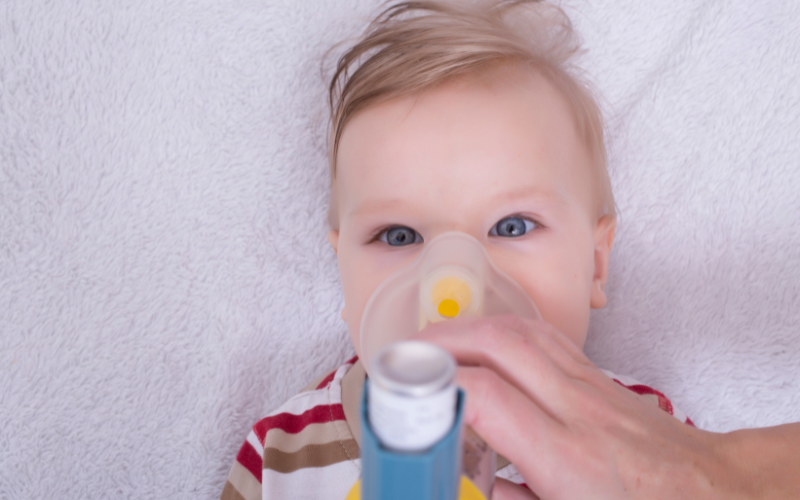
Respiratory wheeze affects approximately half of all children and usually occurs during a respiratory virus infection. While most children naturally outgrow this condition, some develop persistent wheeze that can progress into asthma.
Early identification of children at high-risk for recurrent wheeze is essential for targeted interventions and improved health outcomes. However, what separates children suffering from persistent wheeze versus transient wheeze is not known.
A team of researchers at the Wal-yan Respiratory Research Centre - a powerhouse partnership between The Kids Research Institute Australia, Perth Children’s Hospital Foundation and Perth Children’s Hospital - are working to better understand what is driving the development of recurrent wheeze in childhood.
As published in The Journal of Allergy and Clinical Immunology on 15 December 2023, a new study - Impaired interferon response in plasmacytoid dendritic cells from children with persistent wheeze – aimed to evaluate the function of rare immune cells, specialised in responding to virus infections, in children with transient and persistent wheeze.
The study involved 38 children presenting to the Perth Children’s Hospital emergency department with an acute episode of respiratory wheeze, and 19 controls. Notably, the study participants had an average age of two, whereas asthma is normally diagnosed at the age of five, focussing on early immune responses.
The study found the rare immune cells, known as plasmacytoid dendritic cells, showed clear signs of activation and virus defence in children with transient wheeze, whereas in children with persistent wheeze the same immune cells showed very limited activation without any signs of virus defence.
Dr Jonatan Leffler, one of the study authors and a researcher with the Wal-yan Respiratory Research Centre, emphasized the potential significance of these findings.
Identifying children at high risk of asthma during their initial wheeze episodes could pave the way for early and targeted interventions, ultimately reducing asthma attacks and improving overall health outcomes.
“Building on these initial findings, the research team is now exploring whether similar immune cell observations can be replicated in older children already diagnosed with asthma,” Dr Leffler said.
“This ongoing research aims to further validate the potential for identifying high-risk cases early in the disease, allowing for more personalised therapeutic approaches.”
The study unveils crucial insights into the immune responses of children with persistent wheeze, laying the foundation for early identification and targeted interventions.
As the research progresses, its potential impact on reducing the burden of asthma in high-risk children becomes increasingly promising.
The study was carried out in collaboration with the Wal-yan Respiratory Research Centre and Singapore Immunology Network (SIgN), Agency for Science, Technology and Research (A∗STAR), and was funded by a Wal-yan Respiratory Research Centre Inspiration Award.
The study team included Ms Isabelle Coenen, Dr Emma de Jong, Dr Anya C Jones, Ms Kim Khoo, Ms Shihui Foo, Dr Shanshan Wu Howland, Professor Florent Ginhoux, Professor Peter Le Souëf, Professor Patrick Holt, Associate Professor Deborah Strickland, Associate Professor Ingrid Laing, and Dr Jonatan Leffler.
The paper Impaired interferon response in plasmacytoid dendritic cells from children with persistent wheeze was published in The Journal of Allergy and Clinical Immunology and can be read here
